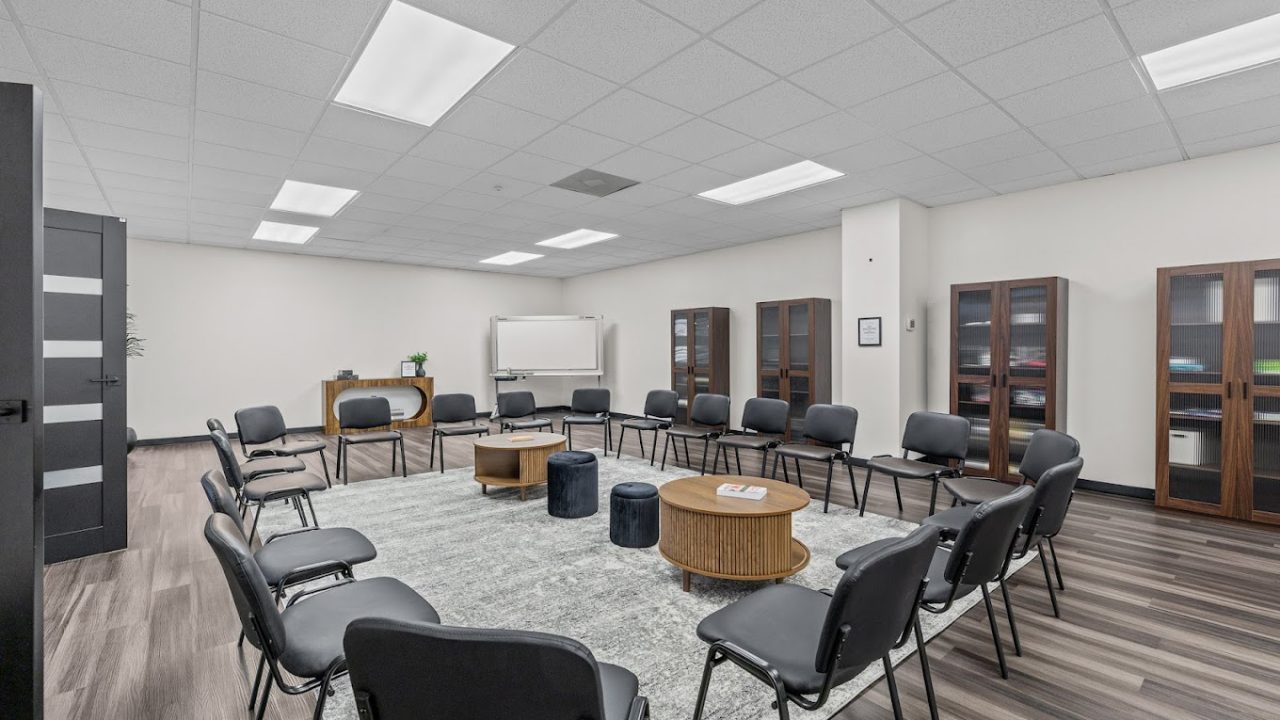How to Get Your Husband Into Rehab: A Wife’s Guide to Convincing Him to Accept Help
Compassionate, Expert Guidance for Wives in Charlotte, NC Who Are Desperate to Save Their Marriage and Get Their Husband the Treatment He Desperately Needs
You’re exhausted. You’ve cried more tears than you thought possible. You lie awake at night wondering if this will be the night you get that devastating phone call. You’ve Googled “how to convince husband to get help addiction” at 2 AM more times than you can count. You’ve hidden his car keys, poured bottles down the drain, pleaded, begged, and threatened. But nothing has worked.
You’re not alone. Right here in Charlotte, North Carolina, hundreds of wives are going through exactly what you’re experiencing. The man you married, the father of your children, the person you built a life with—he has become someone you barely recognize. And the most heartbreaking part? He doesn’t think he has a problem.
At Nova Transformations in Charlotte, North Carolina, we’ve walked alongside countless wives who felt exactly like you do right now. We understand that convincing your husband to get help for addiction isn’t just about having one difficult conversation. It’s about navigating a complex emotional landscape while trying to save your marriage, protect your children, and keep yourself from falling apart in the process.
This comprehensive guide will give you the tools, strategies, and hope you need to help your husband take that crucial first step toward recovery. More importantly, it will help you understand that you cannot control his addiction, but you can control how you respond to it and how you protect yourself and your family.
Recognizing the Signs: Is Your Husband Really Addicted?
Sometimes the hardest part is knowing whether your concerns are justified or if you’re overreacting. Here in Charlotte, many wives struggle with this question because their husbands are high-functioning professionals who maintain jobs and responsibilities while hiding the extent of their substance use.
According to the National Institute on Drug Abuse (NIDA), addiction is defined as a chronic, relapsing disorder characterized by compulsive drug seeking and use despite harmful consequences. It’s considered a brain disorder because it involves functional changes to brain circuits involved in reward, stress, and self-control.
Warning Signs You Cannot Ignore
Physical and Behavioral Red Flags:
- Increasing secrecy about whereabouts, phone calls, and spending
- Defensive or aggressive when questioned about drinking or drug use
- Missing work, family events, or important commitments
- Financial problems or money disappearing from accounts
- Lying about substance use or hiding bottles/drugs
- Needing to drink or use drugs to relax or have fun
- Mood swings or personality changes
- Withdrawal from family activities and intimacy
- Legal problems (DUIs, public intoxication, possession charges)
The American Psychiatric Association defines substance use disorders using 11 criteria, and meeting just 2-3 of these criteria indicates a mild disorder, while 6 or more indicates a severe disorder.
⚠️ Trust Your Instincts
If you’re worried enough to be reading this article, your concerns are valid. Denial is a hallmark of addiction—both his and sometimes yours. Don’t minimize what you’re seeing. Contact Nova’s team for a confidential conversation about your situation.
Sarah’s Story – Myers Park, Charlotte: “I kept telling myself it wasn’t that bad. My husband had a good job, we had a nice house, our kids were in private school. But I was finding empty bottles hidden everywhere. He was drinking in the morning before work. When I finally called Nova Transformations, they helped me see that addiction doesn’t discriminate—it affects professionals and families like ours too. Getting him into treatment saved our marriage and probably saved his life.”
Understanding Why He Won’t Admit He Has a Problem
Before we discuss strategies for getting your husband into treatment, it’s crucial to understand the psychological mechanisms that keep him trapped in denial. This isn’t about him being stubborn or not loving you enough. Addiction fundamentally changes brain chemistry and creates powerful defense mechanisms that make acknowledgment nearly impossible without intervention.
Research from Harvard Medical School shows that addiction hijacks the brain’s reward circuit, causing massive surges of dopamine that reinforce the connection between drug consumption, pleasure, and external cues. Over time, the brain adapts, reducing the high and leading to compulsive drug-seeking behavior.
Research shows: According to SAMHSA (Substance Abuse and Mental Health Services Administration), only 10% of people with addiction seek treatment on their own. The vast majority require external intervention from loved ones, employers, or the legal system. This means your instinct to help him get treatment is not only justified—it’s necessary.
Common Defense Mechanisms You’re Probably Seeing
- Minimization: “I only drink on weekends” or “It’s not like I’m doing hard drugs”
- Comparison: “John from work drinks way more than I do”
- Rationalization: “I work hard, I deserve to unwind”
- Deflection: “You’re being dramatic” or “This is really about your control issues”
- Gaslighting: Making you question your own perception of reality
According to Psychology Today, denial in addiction serves as a protective mechanism that allows the person to continue using despite mounting evidence of harm. Understanding these mechanisms helps you recognize that his resistance isn’t personal. The addiction is speaking, not the man you married.
Our team at Nova Transformations helps both partners understand these dynamics and break through them together.
Preparing for “The Conversation”: What You Need to Know
The conversation about treatment is one of the most important you’ll ever have with your husband. It requires careful preparation, not just emotional courage.
Timing Is Everything
Choose your moment wisely. Experts at the Mayo Clinic recommend having these conversations when the person is sober and receptive, ideally after a crisis or consequence has made the addiction’s impact undeniable.
✓ Good Times to Have This Conversation:
- When he’s sober and clear-headed
- After a consequence (DUI, medical scare, work problem)
- When you’re calm and centered
- In private when children aren’t present
- When you have support lined up and treatment options researched
Research Treatment Options First
Walk into this conversation armed with information, not just emotion. According to the American Society of Addiction Medicine (ASAM), effective treatment should be individualized and address the full range of patient needs, not just substance use.
Here’s what you should have ready:
- Know what’s available: Understanding the different levels of care at treatment centers helps you answer his questions and removes his ability to use logistics as an excuse
- Insurance coverage: The Affordable Care Act requires most insurance plans to cover mental health and substance use disorder services. Contact Nova to learn about your coverage
- Work accommodations: The Family and Medical Leave Act (FMLA) protects employees who need time off for substance abuse treatment
- Childcare arrangements: Have a plan for kids during treatment
Nova Transformations offers free confidential consultations where you can discuss your situation and have answers ready for your husband’s likely objections. Call (704) 420-7686 to speak with someone who understands what you’re going through.
What to Say: The Communication Framework That Works
How you say something is often more important than what you say. Research on Motivational Interviewing, an evidence-based approach to helping people change, shows that expressing empathy and avoiding argumentation are key to breaking through resistance.
Use “I” Statements Instead of “You” Accusations
| ❌ What NOT to Say | ✅ What TO Say |
|---|---|
| “You’re an alcoholic and you’re destroying our family” | “I’m scared about the amount you’re drinking and how it’s affecting our family” |
| “You always choose drugs over your kids” | “I feel hurt when you miss the kids’ activities, and I worry about what they’re learning” |
| “You’re a liar and I can’t trust anything you say” | “I feel confused when I find things hidden or hear different stories” |
| “You’re going to lose everything” | “I’m afraid of what might happen if things continue this way” |
Lead with Love and Specific Concerns
Example Script:
“Honey, I need to talk to you about something that’s been weighing on me. I love you, and that’s why this conversation is so important. I’ve noticed some changes that really worry me. Last Tuesday, you didn’t come home until 3 AM and couldn’t remember where you’d been. On Saturday, you had six beers before noon. This morning, I found a bottle hidden in your truck. I’m not saying this to hurt you—I’m scared of losing you. I’ve found a treatment center here in Charlotte called Nova Transformations that can help. Will you at least talk to them with me?”
Be Prepared with Concrete Next Steps
- “I’ve already talked to Nova Transformations, and they can speak with us tomorrow”
- “I have the insurance information—let’s find out together what’s covered”
- “Your mom will watch the kids while we figure this out”
- “I’ve already packed a bag if you’re ready to go”
Having logistics handled removes barriers and excuses.
Handling His Excuses: Responses to Common Objections
Your husband will likely have reasons why he doesn’t need treatment. Here’s how to address them:
Excuse #1: “I Don’t Have a Problem”
Your response: “I understand you don’t see it that way, and that’s actually one of the signs of how serious this has become. Can I share some specific examples? If there’s no problem, would you be willing to stop for 30 days to prove it? Let’s get an objective opinion from a professional at Nova.”
Excuse #2: “I Can Quit Anytime I Want”
Your response: “I believe you think that’s true. But you’ve said that before. You promised to stop after your DUI, but you were drinking again within a week. If you can quit anytime, why haven’t you? Maybe professional help could make the difference.”
Excuse #3: “I Can’t Afford to Miss Work”
Your response: “I understand you’re worried about work, but consider the alternative. You have FMLA protection, and your insurance likely covers treatment. There are programs that work around your schedule. Let’s talk to Nova about options that fit your situation.”
Excuse #4: “Rehab Is for People Worse Off Than Me”
Your response: “Addiction doesn’t have a dress code. Treatment centers help everyone from people who’ve lost everything to successful professionals like you. Getting help before you lose those things is the smartest choice.”
Excuse #5: “What Will People Think?”
Your response: “People who love you want you healthy. Going to treatment shows strength, not weakness. And treatment is confidential under HIPAA laws. Your health matters more than anyone’s opinion.”
When Talking Doesn’t Work: Professional Intervention
Sometimes, despite your best efforts, your husband remains unwilling to seek help. This doesn’t mean all hope is lost. Professional intervention can be the bridge between denial and treatment.
According to research published in the Journal of Substance Abuse Treatment, professionally facilitated interventions significantly increase treatment entry rates compared to informal family confrontations.
How Professional Interventions Work
Nova Transformations offers professional intervention services throughout the Charlotte metro area. Here’s what to expect:
- Initial Consultation: Meet with a certified interventionist from Nova to discuss your situation
- Team Selection: Identify who should participate (family, friends, colleagues)
- Pre-Intervention Preparation: Each person prepares their statement with specific examples
- The Intervention: The interventionist facilitates the conversation productively
- Immediate Action: Your husband goes directly to treatment—bags are packed, arrangements are made
Success Rate: Professionally conducted interventions have an 80-90% success rate in getting people into treatment, according to intervention specialists.
⚠️ Why DIY Interventions Often Fail
Without professional guidance, emotions escalate, the confrontation becomes hostile, and the addicted person feels attacked and leaves. Don’t risk making things worse. Use professional support from Nova.
Setting Boundaries Without Enabling
One of the most challenging aspects of loving someone with addiction is knowing how to support them without enabling their disease. According to Al-Anon, a support group for families of alcoholics, enabling behavior prevents the addicted person from experiencing the consequences of their actions.
Understanding the Difference
| ✅ Healthy Support | ❌ Enabling |
|---|---|
| Encouraging treatment and recovery | Making excuses for his behavior |
| Attending family support sessions at Nova | Calling his workplace to lie about absences |
| Taking care of yourself and the children | Sacrificing your wellbeing to protect him |
| Letting him experience natural consequences | Bailing him out of legal trouble |
| Setting clear boundaries | Tolerating abuse without consequences |
Examples of Healthy Boundaries
- Financial: “I’ve opened a separate account for household expenses. I will not give you cash or pay for anything related to drinking/drugs.”
- Safety: “If you drive intoxicated with our children, I will call the police. Their safety is non-negotiable.”
- Communication: “I will not engage when you’re under the influence. We can talk when you’re sober.”
- Living arrangement: “If you refuse treatment, I need you to stay somewhere else. I cannot watch you destroy yourself while our children witness it.”
Our team at Nova helps spouses work through the guilt of setting boundaries and develop the strength to maintain them.
Jennifer’s Story – Charlotte, NC: “The hardest thing I ever did was tell my husband he had to move out until he got treatment. But my counselor at Nova helped me see that I was actually loving him by not participating in his destruction anymore. Within two weeks of me holding that boundary, he called and asked about treatment options. He’s now 18 months sober.”
Protecting Yourself and Your Children
While you work to get your husband help, your first responsibility is to yourself and your children. You cannot sacrifice your family’s wellbeing in hopes of saving him.
⚠️ If You’re in Immediate Danger
Call 911 immediately if you or your children are in danger.
Charlotte resources:
- National Domestic Violence Hotline: 1-800-799-7233 (24/7)
- Safe Alliance (Charlotte): 980-771-4673
- Nova Transformations: (704) 420-7686
The Impact on Children
Living with a parent’s addiction profoundly affects children. According to the National Association for Children of Alcoholics, children of addicted parents are at higher risk for emotional problems, behavioral issues, and developing substance use disorders themselves.
Your children are witnessing everything, even when you think they’re not paying attention. Consider getting them into family support or counseling designed for children of addicted parents through resources like Nova.
Self-Care Isn’t Selfish
You cannot pour from an empty cup. Self-care includes:
- Getting your own therapy or counseling through Nova or other providers
- Attending Al-Anon or Nar-Anon meetings for families
- Maintaining connections with friends and family
- Taking time for activities that bring you joy
- Getting adequate sleep, nutrition, and exercise
What Treatment Looks Like at Nova Transformations
Understanding what’s available at treatment centers in Charlotte helps you make informed decisions and answer his questions about what treatment will be like.
Treatment centers like Nova Transformations offer different levels of care based on individual needs—from intensive programs where he stays at the facility, to flexible options that allow him to continue working while getting help. The right level depends on the severity of addiction, his support system at home, and other factors that professionals at Nova can help assess.
What matters most is that treatment addresses not just the addiction itself, but the underlying issues that fuel it—whether that’s trauma, mental health conditions, or life circumstances. According to NIDA’s Principles of Drug Addiction Treatment, effective treatment at Nova combines medical support, counseling, skill-building, and family involvement to create lasting change.
Ready to Take the First Step?
Talk to our team at Nova Transformations for a free, confidential conversation. We’ll listen to your situation, answer your questions, and help you understand what options might work for your family.
☎ Call (704) 420-7686 Contact Us OnlineSupporting His Recovery Journey
If your husband agrees to treatment at Nova, your role shifts from convincing to supporting. But what does healthy support look like?
What to Expect During Treatment
The First Week:
- Getting acclimated to the environment and routine at Nova
- Initial assessments and treatment planning
- May have limited contact while he settles in
- Mood swings as his body and mind adjust
Weeks 2-4:
- Deeper engagement in counseling and groups
- Developing coping skills and insights
- Family sessions may begin at Nova
- Making connections with peers in recovery
Rebuilding Trust
Trust isn’t rebuilt instantly when treatment ends. According to relationship experts at The Gottman Institute, rebuilding trust requires consistent behavior over time, not just words. It’s earned slowly through actions:
- Expect it to take months or years
- Verify when needed (transparency about whereabouts, accountability)
- Watch for actions, not words
- Allow yourself to have complicated feelings
- Celebrate sobriety milestones with support from Nova’s team
Relationship counseling timed appropriately can support both individual recovery and relationship healing at Nova Transformations.
Frequently Asked Questions
You can’t convince someone in denial using logic alone. Focus on specific observable impacts, express fear rather than anger, and use “I” statements. Consider professional intervention services from Nova, which have an 80-90% success rate. Set firm boundaries and have treatment options researched. Call (704) 420-7686 to discuss your specific situation with Nova’s team.
Research from NIDA shows that 40-60% of people maintain long-term recovery after treatment, comparable to management rates of other chronic diseases. Success depends on completing the full program at places like Nova Transformations, participating in continuing care, addressing co-occurring mental health issues, and having family support while maintaining healthy boundaries.
There’s no “quick fix” for addiction. According to SAMHSA, research shows longer treatment durations lead to better outcomes. Recommendations typically include at least 90 days of active treatment at Nova, followed by ongoing support. Call (704) 420-7686 to discuss the right timeline for your husband’s specific needs.
Previous treatment doesn’t mean treatment doesn’t work. This time can be different with thorough assessment at Nova to determine appropriate level of care, treatment of co-occurring mental health issues, commitment to full continuum of care, addressing family dynamics, and comprehensive relapse prevention. Contact Nova to discuss what might be different this time.
You’re enabling if you’re shielding him from consequences. To help without enabling: set clear boundaries, let him experience natural consequences, and get support through counseling at Nova or Al-Anon. Nova’s team helps families learn healthy relationship dynamics. Remember: You didn’t cause his addiction, you can’t control it, and you can’t cure it. Call (704) 420-7686 for guidance.
Final Words of Hope from Nova Transformations
You are reading this because you love your husband and you’re terrified of losing him. You’re exhausted, scared, and probably feeling very alone. But here’s what we at Nova Transformations want you to know: You are not alone, this is not your fault, and there is hope.
Thousands of marriages have survived addiction when both partners were willing to do the hard work of recovery. Thousands of wives just like you in Charlotte have made the phone call that changed everything. They were scared too. They didn’t know if it would work. But they did it anyway.
Your husband’s addiction is not a reflection of your worth or his love for you. It’s a disease that requires professional treatment. You cannot love him out of this. You cannot control or fix this. But you can offer him the opportunity to get help at Nova Transformations, and you can take care of yourself and your children.
You are stronger than you think. You are braver than you feel. And you deserve support on this journey.
Take the First Step Today with Nova Transformations
Don’t wait until it’s too late. Call Nova Transformations now for a free, confidential consultation.
Our team is available 24/7 to answer your questions, discuss your situation, and help you create a plan. You don’t have to figure this out alone.
☎ Call (704) 420-7686 Now Schedule a ConsultationServing Charlotte, Davidson, Cornelius, Huntersville, Matthews, and all of Mecklenburg County, North Carolina
References and Additional Resources
Clinical and Research Sources:
- National Institute on Drug Abuse (NIDA). “Drugs, Brains, and Behavior: The Science of Addiction.” National Institutes of Health, 2024.
- Substance Abuse and Mental Health Services Administration (SAMHSA). “Treatment and Recovery.” U.S. Department of Health and Human Services, 2024.
- American Society of Addiction Medicine (ASAM). “The ASAM Criteria: Treatment Criteria for Addictive, Substance-Related, and Co-Occurring Conditions.” 2023.
- Harvard Medical School. “How Addiction Hijacks the Brain.” Harvard Health Publishing, 2024.
- American Psychiatric Association. “What Is a Substance Use Disorder?” 2024.
- Mayo Clinic. “Intervention: Help a Loved One Overcome Addiction.” 2024.
- Al-Anon Family Groups. Support for families and friends of problem drinkers.
- National Association for Children of Alcoholics. Resources for families affected by addiction.
About Nova Transformations:
Nova Transformations is an addiction treatment center serving Charlotte, North Carolina and the surrounding communities. We provide comprehensive, evidence-based treatment for substance use disorders and co-occurring mental health conditions. We accept most major insurance plans and offer free consultations for families seeking help. Visit NovaTransformations.com or call (704) 420-7686.
Additional Charlotte Addiction Resources:
- Nova Transformations Blog – Articles on addiction, recovery, and family support
- Substance Abuse Treatment Options in Charlotte, NC
- Dual Diagnosis Treatment for co-occurring disorders
- Contact Nova Transformations for confidential consultation
- SAMHSA Treatment Locator – National treatment finder
Disclaimer: This article is for informational purposes only and does not constitute medical advice. Every situation is unique, and treatment recommendations should be made by qualified healthcare professionals after thorough assessment. If you or your loved one is in crisis or immediate danger, call 911 or go to the nearest emergency room. For addiction treatment inquiries, contact Nova Transformations at (704) 420-7686 for a confidential consultation.
Last Updated: November 12, 2025 | Location: Nova Transformations, Charlotte, North Carolina | Service Area: Charlotte, Davidson, Cornelius, Huntersville, Matthews, and throughout Mecklenburg County, NC









